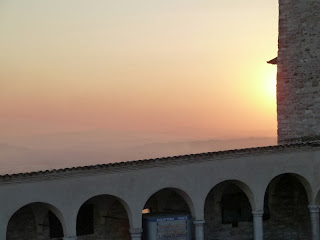I’ve always said that complexity always leads to failure. Simplicity, however, is not, conversely or paradoxically a simple idea. More complex plans have landed on the rocks because simplicity was eschewed because a simple plan was never considered. The options you give people, the more mistakes they can make, the more loose ends they can leave dangling, the more bad decisions they can dive into. Many people are guilty of bad planning because they never understood the simplicity of their situation in the first place. Not that life is black and white, but gray is utterly simple. People often get hung up on issues of right or wrong when they never understood the problem in the first place. Simplicity is often as simple as never offering an opinion in the first place, as simple as walking away and leaving good enough alone, as simple as letting things be. I’m not talking about Natural Law, or inalienable rights, or the pursuit of happiness, but I am loosely speaking of tolerance, but tolerance that is simple, uncodified, and transparent. Simplicity is an act of seeing clearly, of moving away the detritus, dusting away the ashes, and removing that which is blocking understanding. We often complain blindly about things we don’t know about, things we can’t understand, or things we cannot change, banging our collective heads against the wall in expression of insanity that is trying to elicit a different outcome from the same set of parameters. Simplicity avoids these kind of simulacra and conundrums and accepts the world as it is, not how we want it to be. Does that mean we will disagree at times with what we see and experience? Of course it does, but simplicity also dictates that that is irrelevant–the world will always be filled with those things with which we disagree, with which we take offense, but simplicity also dictates that we avoid dying on those hills because most of those kinds of fights are always lost. Is the world filled with injustice? Yes, and we should always voice our objections to injustice, but simplicity will often whisper in our ears that there is a vast chasm between that which is unjust and that which just is.
New Media Seminar – Spring 2012
Awakening the Digital Imagination

